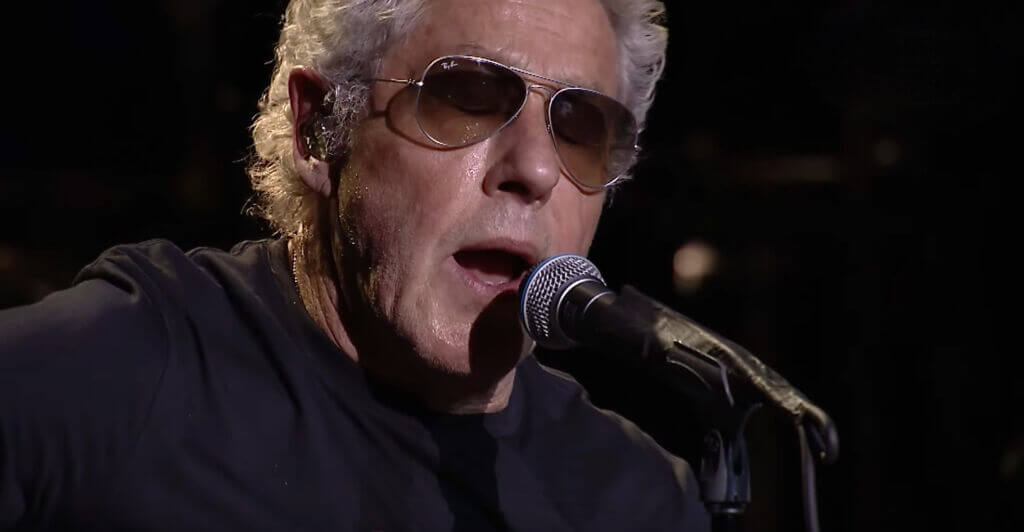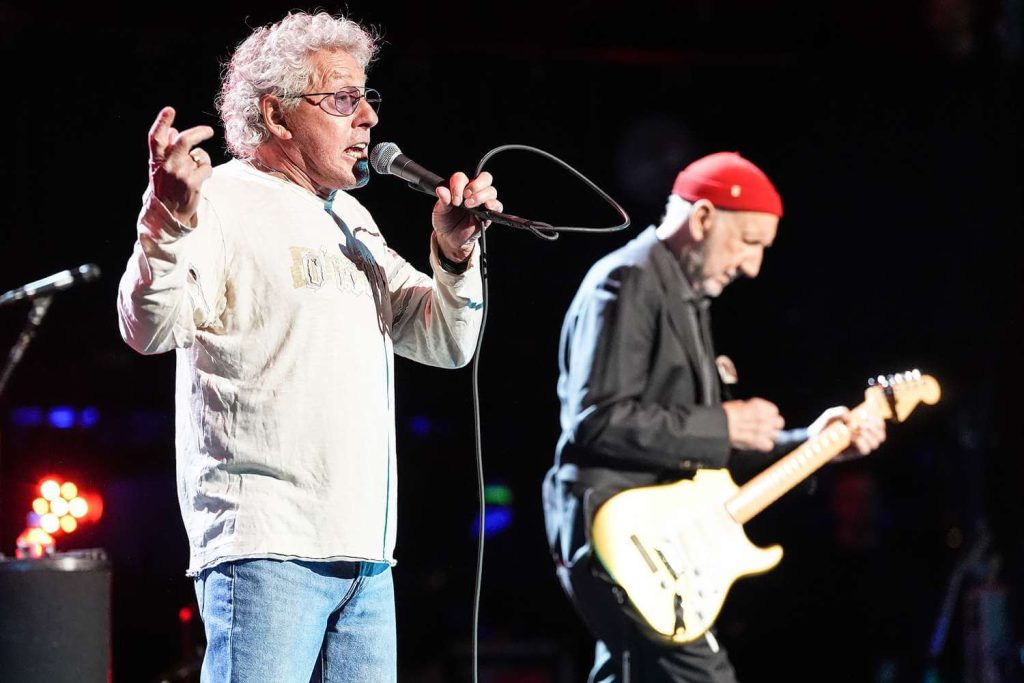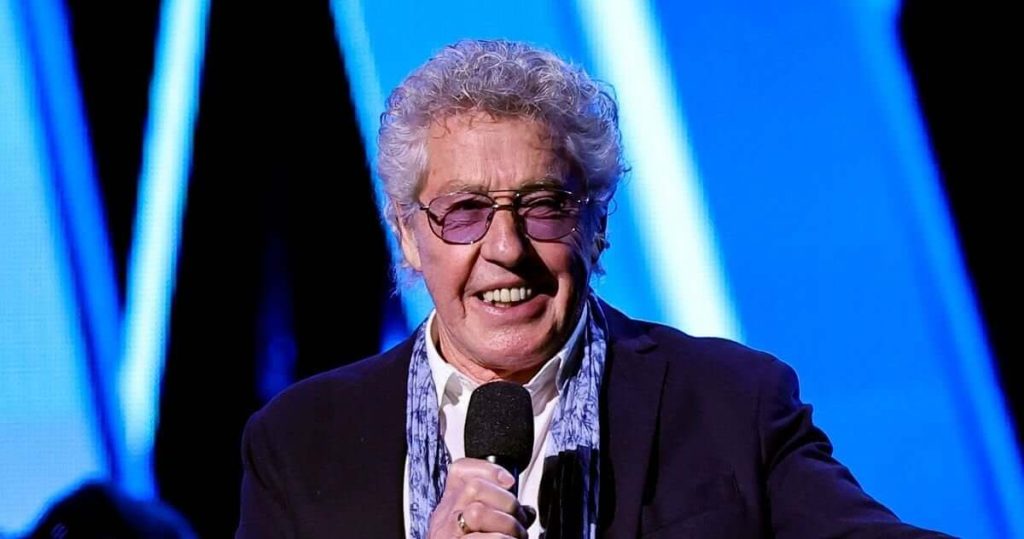World News
Roger Daltrey’s Resilient Rhythm: The Who Frontman Confronts Deafness, Blindness, and Legacy with Grace
Introduction: A Rock Legend’s Honest Update
Roger Daltrey, iconic frontman of The Who, recently delivered a candid and moving update during a charity concert at London’s Royal Albert Hall. At 81 years old, Daltrey revealed to a stunned audience that he is now both going deaf and blind—yet, in true rock ‘n’ roll spirit, he remains undeterred. “Fortunately, I still have my voice,” he quipped, referencing Tommy, The Who’s 1969 rock opera about a deaf, blind, and mute boy. The announcement came during a benefit performance for the Teenage Cancer Trust, a cause close to Daltrey’s heart for over two decades. His honesty about aging, combined with a relentless commitment to music and charity, speaks volumes about his enduring legacy, resilience, and humor.

The Challenges of Time: Facing Deafness and Blindness
For Roger Daltrey, the march of time has not been subtle. His revelation about his deteriorating senses may have shocked fans, but it wasn’t completely unforeseen. In previous interviews, Daltrey had discussed hearing issues, a common affliction for many veteran rockers who spent decades surrounded by blaring amplifiers. However, the addition of vision loss now adds another layer to his health journey. “The joys of getting old mean you go deaf,” he said onstage, followed by the unexpected, “I also now have got the joy of going blind.” Despite the gravity of this news, Daltrey delivered it with levity, turning a moment of vulnerability into one of connection with his fans. His willingness to be open about the realities of aging offers an important cultural counterpoint to the often youth-obsessed world of rock music.
Still Standing: Humor and Humanity on Stage
In true performer fashion, Daltrey didn’t let his health news overshadow the night’s mission—raising funds for young cancer patients. After his heartfelt admission, he and long-time bandmate Pete Townshend launched into another classic song, as if to remind the world: The show must go on. His remark about becoming a “full Tommy” if he ever lost his voice was more than just a nod to the band’s legendary opera—it was a sign of Daltrey’s enduring spirit. The concert was filled with energy, emotion, and a bit of rockstar mischief, highlighting how Daltrey continues to channel his challenges into passion and purpose. Despite the physical decline, his voice, stage presence, and sense of humor remain intact—a testament to his refusal to let aging define him.

The Teenage Cancer Trust: A Legacy Beyond Music
Daltrey’s performance at the Royal Albert Hall also marked a transition in his long-standing role as curator of the Teenage Cancer Trust concerts. Since launching the initiative in 2000, Daltrey has raised millions and hosted countless legendary performances, becoming a pillar of support for young people battling cancer. In 2024, he announced his decision to step down from the curator role, passing the torch to The Cure’s Robert Smith. Writing in The Times, Daltrey reflected, “I have to be realistic. I’m on my way out.” While the line carries a heavy truth, it also encapsulates Daltrey’s pragmatism and deep sense of responsibility. Even in retirement from the formal role, he pledged to remain active as a patron, continuing to support the cause he’s championed for nearly 25 years.
Pete Townshend and the Unstoppable Who
The Royal Albert Hall performance also featured Pete Townshend, Daltrey’s lifelong bandmate and creative partner. At 79, Townshend revealed he was recovering from a recent knee replacement—an injury humorously blamed on dancing. “Maybe I should auction off the old one,” he joked, matching Daltrey’s wit with his own. Their camaraderie, built over decades, was on full display, showing fans that while time may slow them physically, it hasn’t dulled their edge. Together, they embody the defiance that The Who built its identity on—challenging authority, aging, and even their own limitations. Their continued appearances, both for music and for charity, signal a refusal to be sidelined by age or ailments. For many, their presence on stage is not just entertainment; it’s a form of inspiration.
Reflections on Mortality and Musical Immortality
Roger Daltrey has always been known for his voice, charisma, and high-octane performances. Now, as he publicly navigates the limitations brought on by age, he offers something even more powerful: honesty. His acknowledgment of mortality isn’t a retreat—it’s a rallying cry to keep living, performing, and giving while he still can. Though he may one day lose more than just his sight or hearing, Daltrey’s influence is immortal. From timeless hits like “Baba O’Riley” and “My Generation” to his philanthropic legacy with the Teenage Cancer Trust, Daltrey has left a mark that won’t fade. As he sings through fading senses, what shines even brighter is the depth of his humanity—a reminder that the greatest legends aren’t just defined by what they do at their peak, but by how they endure.
Conclusion: Still Roaring, Still Roger
Roger Daltrey’s recent announcement was not a goodbye—it was a declaration. Though his body may be betraying him, his voice, spirit, and sense of duty remain unshaken. At 81, the frontman who once screamed about not dying before getting old now faces aging with grace, grit, and gratitude. Whether belting out rock anthems or raising millions for cancer care, Daltrey proves that true artistry transcends time. And as long as he has a stage, a cause, and a song, Roger Daltrey will keep roaring.
From thedragonfashion


